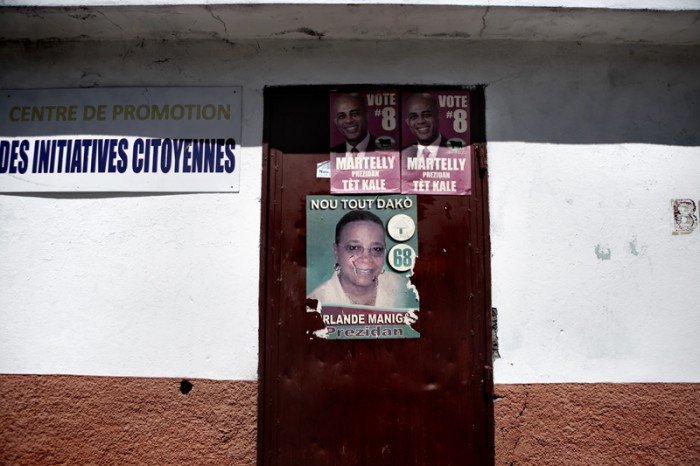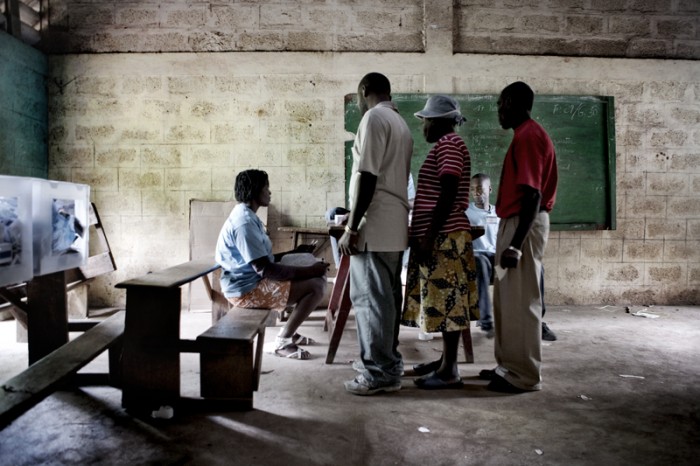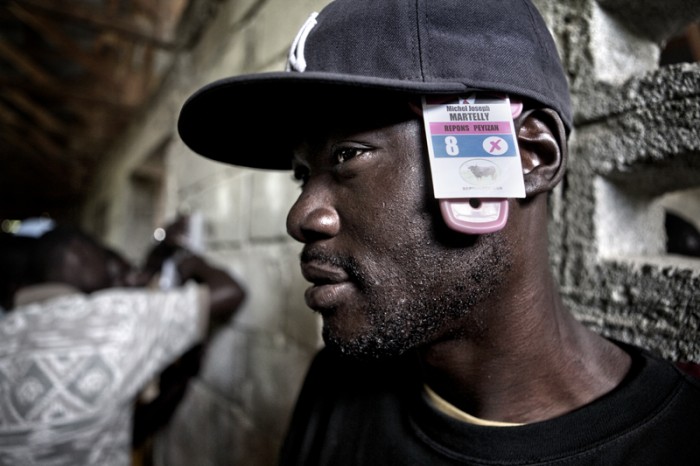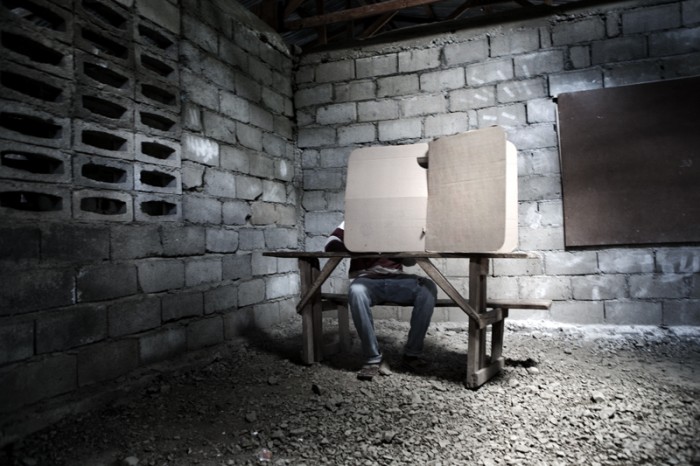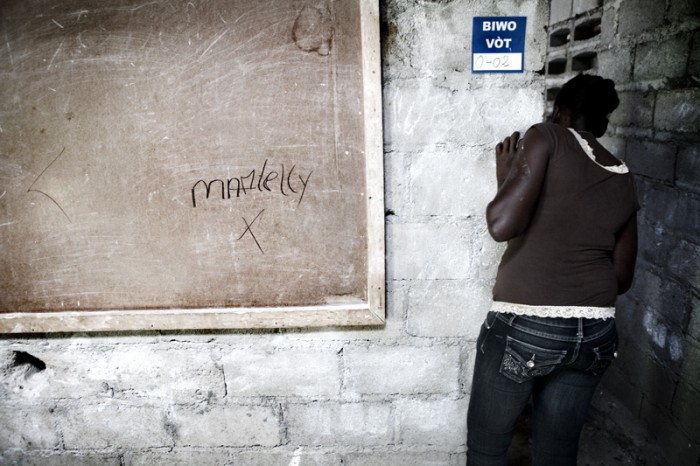This website uses cookies so that we can provide you with the best user experience possible. Cookie information is stored in your browser and performs functions such as recognising you when you return to our website and helping our team to understand which sections of the website you find most interesting and useful.
Bittersweet Election
-
PrizeSilver in Press/Political
-
PhotographerLuca Tommasini, Italy
-
Website
Official results for the Haitian presidential election has been released. Michel "Sweet Micky" Martelly is officially the president. With no political experience, the singer is preparing to play a very delicate role: to give Haiti a government capable of interacting with international organizations, NGOs and, above all, Haitians. Many people wonder which line Martelly will take.The president-elect, in fact, will have to deal with at least four elements of weakness. The first doubt about the electoral process from which it was excluded, by the end of 2009, Aristide's party, Fanmi Lavalas, and this has left many people still believe in the renewal process began at the time former President, without political representation.Secondly, the balloting for the presidential turnout was between 23 and 30%, this means that Martelly was chosen by less than a fifth of the population. The third element concerns the weakness of Parliament, which is controlled almost entirely by the party of outgoing President Preval, who was accused of rigging during the first round, had to surrender and accept the exclusion of its candidate for president, but he stood strong for what about deputies and senators.Finally, but perhaps the first problem, at this time Haiti has no independent policy, every action must be agreed with foreign countries, the United Nations and with the large NGOs, which leaves very little room for maneuver. The risk in the short mount a dissatisfaction with the President and that anyone would think to take advantage of renewing the tradition of coups is real. To avoid this will be a key aid policy of the United States, Brazil and Europe that will support, without limiting their independence, the new president. These days, finally, the Jesuit Refugee Service denounces the deportations that the U.S. is committed against the Haitian immigrants, a couple of days ago a group of 19 people has been returned. Faced with protests, the State Department says that the problem of their quality of life concerns the Haitian government, not the U.S.
Freelance photographer since the age of 20. I mostly worked with several International Organizations and, meantime, I had the chance to work on my personal reportages. During field missions in Haiti, West Bank, Gaza Strip, Tanzania, Chilean Patagonia and Russia among others, I covered a wide range of issues going from food and agriculture, fishing activities, health, education, critical impacts of energetic policies, always keeping a wide angle on the social and economic contexts, beside a relevant production on conflict documentation specifically in the Palestinian Territories.
